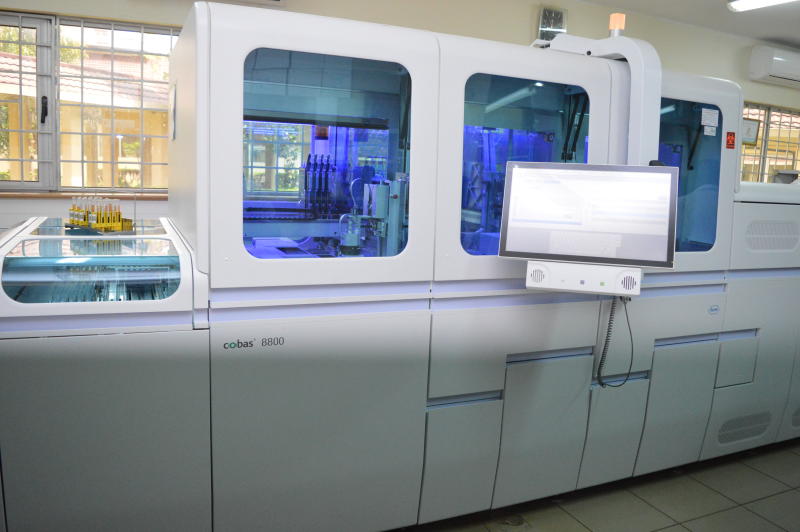
Ever since William Ouma was diagnosed with HIV five years ago, he has developed a treatment routine.
He regularly goes to a treatment centre to collect his medication and give a blood sample for a viral load test (VLT).
A VLT is a laboratory test that measures the amount of HIV in a blood sample. The test is used to diagnose acute HIV infection, guide treatment choices, and monitor response to antiretroviral therapy.
But for the first three years, whenever Ouma gave blood for a VLT, he had to wait for one month before he could get his results. And sailing in the same boat were the more than one million HIV positive patients across the country.
This was until the installation of a hi-tech machine at the Kenya Medical Research Institute – Centre for Global Health Research in Kisumu two years ago, making Kenya only the second country after South Africa to have the facility.
The machine, which was launched last Thursday by Deputy Governor Mathew Owili following a partnership between the national government and Roche under the company’s Global Access Program, has been releasing clients’ VLT results in one week.
Dr Owili said the county had been working closely with Kemri to manage HIV.
Disease burden
The centre is especially important given that the counties of Kisumu, Siaya, Homa Bay and Migori bear the greatest burden of HIV prevalence in Kenya with about one in every six people living with the virus, according to the Kenya Aids Indicator Survey.
Dr Maxwell Majiwa, the HIV Research Laboratory Director at Kemri-Kisumu said thousands of HIV samples from clients are processed daily.
The machine initially handles 96 samples in the first three-and-a-half hours when it starts working after which it tests another 96 samples every hour.
For the two years it has been in operation, about 500,000 samples have been tested with 79 percent showing viral suppression.
“Viral load measurement is vital to assess the impact of HIV treatment efforts, and is recommended by the World Health Organisation as the primary methodology for monitoring response to treatment,” said Majiwa.
He added: Viral load tests require accurate, specific, efficient and reliable diagnostic equipment with high throughput to handle a larger volume of samples and give results within shorter time period for timely patient management.”
Viral suppression is one of the key goals in the drive to eliminate HIV by 2030.
To achieve this, UNAids set an ambitious 90:90:90 target for 2020, which seeks to have 90 percent of all people living with HIV tested; 90 percent of those living with the virus to be put on antiretroviral therapy and 90 percent of those receiving treatment to have their viral load suppressed.
Kisumu Chief Health Officer Dickens Onyango said the machine would also benefit children born with HIV by reducing the period between testing and being put on treatment.
Roche Diagnostics Kenya representative Richard Kyania said that apart from donating the machine, the company would service it regularly as well repair it if it broke down.
 The Standard Group Plc is a multi-media organization with investments in media
platforms spanning newspaper print
operations, television, radio broadcasting, digital and online services. The
Standard Group is recognized as a
leading multi-media house in Kenya with a key influence in matters of national
and international interest.
The Standard Group Plc is a multi-media organization with investments in media
platforms spanning newspaper print
operations, television, radio broadcasting, digital and online services. The
Standard Group is recognized as a
leading multi-media house in Kenya with a key influence in matters of national
and international interest.











